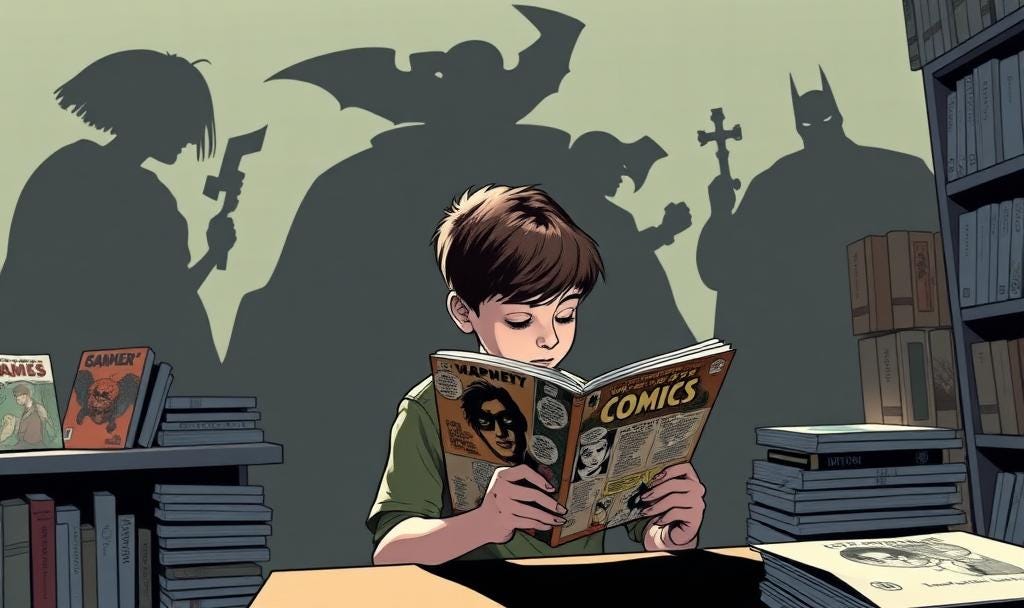Being a Geek is Kindness
We've always been inclusive.
Geek and pop culture narratives have always leaned progressive and inclusive; attitudes that now seem "left-wing" were often present from the beginning. Those who cannot support LGBTQ+ rights, Black Lives Matter, or immigrants are at odds with the inclusive values fundamentally built into the stories of geek culture. The backlash against diverse characters—such as a Black Spider-Man, a female Thor, or Ms. Marvel being Muslim—misunderstands the original inclusive intent of these franchises. The recurring theme in many classic comic, sci-fi, and fantasy stories is to value diversity and reject xenophobia, sexism, and racism; villains are typically the ones depicted as intolerant. Stan Lee publicly denounced racism and bigotry as among "the deadliest social ills," emphasizing that Marvel's stories stand against bigotry of all forms.
But don’t take my word for it, here are some examples:
Superman and Wonder Woman are both immigrants—Superman from Krypton and Wonder Woman from Themyscira—and both characters embody messages of acceptance, integration, and equality.
Star Trek has always pushed for equality across genders, races, and sexualities, featuring television’s first interracial kiss and advocating for acceptance of diversity and pro-choice messages as early as the 1960s.
Deadpool is canonically pansexual, a fact confirmed by creators and depicted in comics and statements from the character’s writers.
The Punisher comics have explicitly condemned the appropriation of the character’s symbol by law enforcement and military groups, with creators and recent issues showing Frank Castle rejecting such associations.
Doctor Who features the Doctor battling authoritarianism and fighting for the oppressed throughout history, often opposing totalitarian regimes.
In Star Wars, the Galactic Empire is widely recognized as a fascist regime, with the Rebel Alliance representing anti-fascist resistance.
Captain America was introduced as a symbol against Nazism, famously punching Hitler on the cover of his first comic in 1941. The character embodies anti-fascist ideals.
Black Panther explores the impact of colonization on African nations and imagines Wakanda as an uncolonized African utopia. Director Ryan Coogler and Marvel have discussed how the film addresses colonialism and its legacy.
The X-Men stories serve as an allegory for civil rights struggles, with many scholars and creators confirming that mutants' fight for acceptance parallels real-world issues faced by marginalized groups. As co-creator Stan Lee said, X-Men was inspired by the civil rights movement.
Did you learn something today? Enter the chat to talk about it!
Today you also get sources! Because why not? If you liked that list I made, you’re gonna love reading where I get all this from. Check out these citations below.
Kendall, L. (1999). "Nerd Nation: Images of Nerds in US Popular Culture." International Journal of Cultural Studies.
Woo, B. (2012). "Cultural Practices and Community-Making in a Subcultural Scene."
Yu, R. (2010). "Geek Media and Identity."
Smithsonian Magazine, "Comics Teach Tolerance."
Marvel Comics, "Stan's Soapbox" (1968).
The Washington Post, "Superman and Wonder Woman: Immigration and Inclusion."
NPR, "Star Trek’s Legacy of Diversity."
Comic Book Resources, "Deadpool’s Queerness."
The New York Times, "The Punisher’s Creators Critique Police Appropriation."
Radio Times, "Doctor Who: A Timelord Fights Totalitarianism."
The Atlantic, "Star Wars and Fascism."
Marvel Comics, Captain America No. 1, 1941.
Vox, "How ‘Black Panther’ Explores Colonialism."
Smithsonian Magazine, "X-Men As Civil Rights Allegory."
University of Pennsylvania, "Geek Cultures: Media and Identity in the Digital Age."



